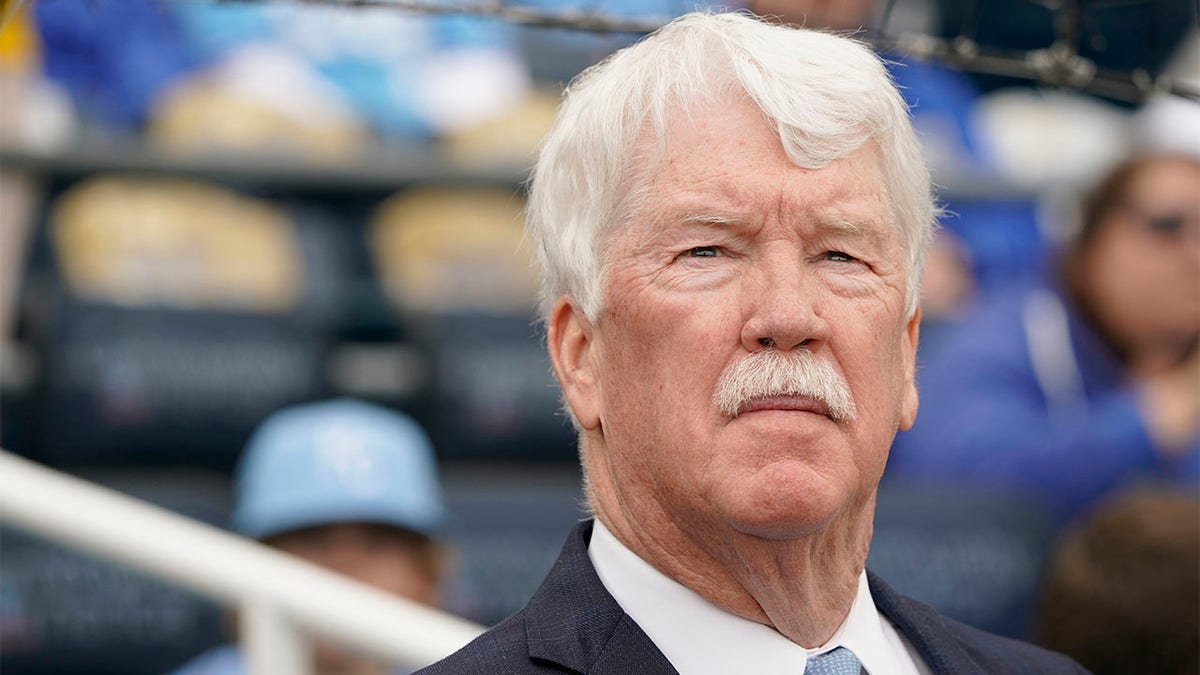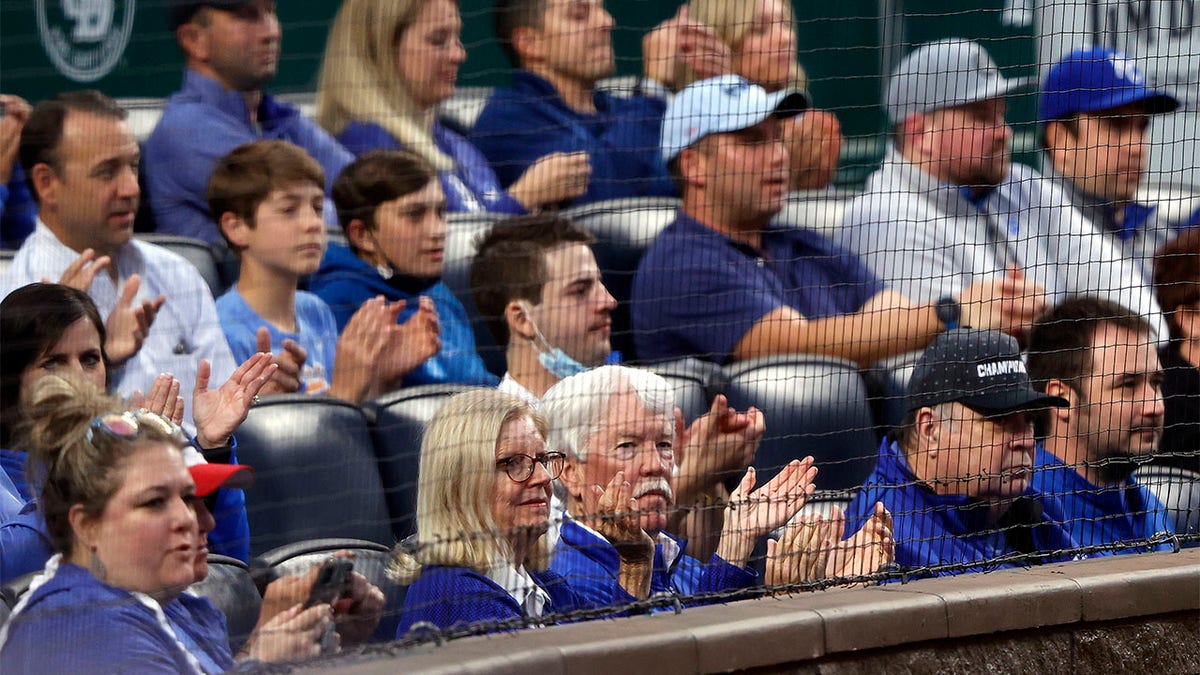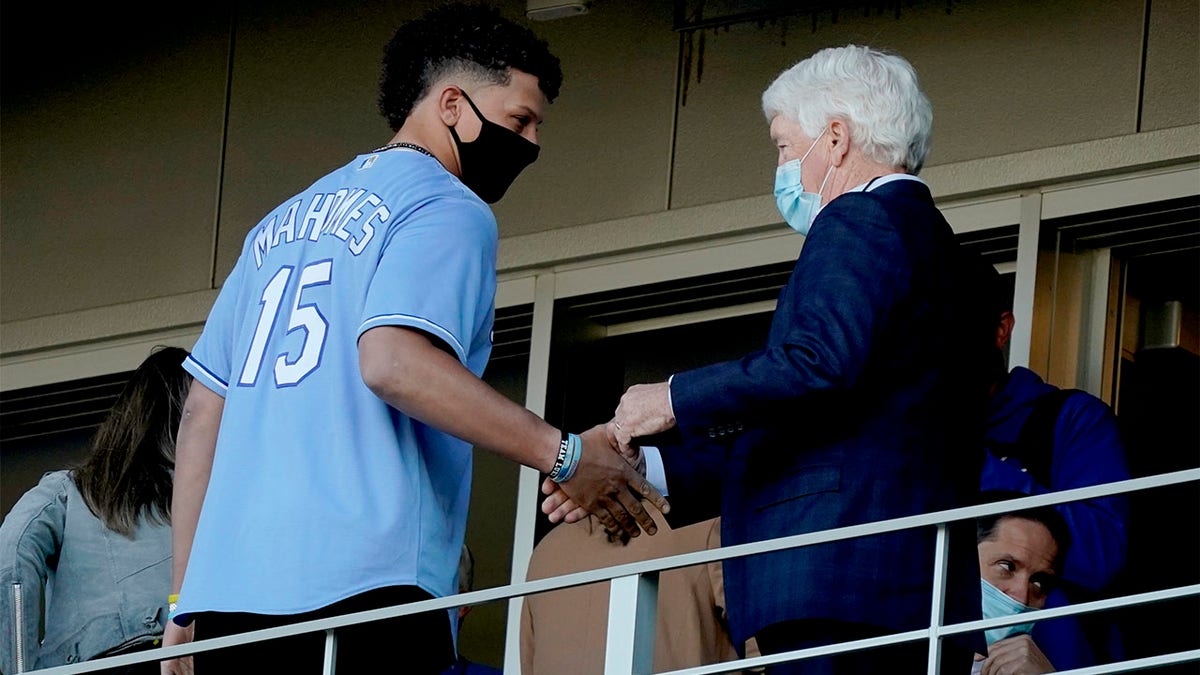Fox News Flash top sports headlines for July 26
Fox News Flash top sports headlines are here. Check out what's clicking on Foxnews.com.
The Kansas City Royals are trying to be more transparent about their plans for a new ballpark.
Majority owner John Sherman released a letter to fans Tuesday in hopes of providing a timetable on stadium proposals.
Sherman said "detailed renderings and many other components that will help us compare the broad benefits" of two competing sites will be released in the next 30 days. After that, the team expects to pick between downtown Kansas City and a spot in neighboring Clay County, which sits across the Missouri River.
CLICK HERE FOR MORE SPORTS COVERAGE ON FOXNEWS.COM

Kansas City Royals owner John Sherman is seen on Opening Day prior to a gam against the Minnesota Twins at Kauffman Stadium on March 30, 2023 in Kansas City, Missouri. (Ed Zurga/Getty Images)
"We are committed to doing this right," Sherman wrote. "This is a huge decision for us. We’re focused on playing the long game for the region we call home. In late September, we plan to announce which site will best fulfill our pledge to Kansas City to create 1) powerful community impact, 2) generate sustainable economic activity in the county, city, and state, and 3) greater opportunity for the citizens of our region."
The Royals previously said the ballpark project would cost $2 billion, with most of that being footed by the team's ownership group.

Kansas City Royals owner John Sherman watches from the Crown seats during the game against the Chicago White Sox at Kauffman Stadium on May 07, 2021 in Kansas City, Missouri. (Jamie Squire/Getty Images)
In the letter, Sherman shared his financial projections for the proposed ballpark district. He believes it would create more than 20,000 jobs, $1.4 billion in labor income and $2.8 billion in total economic output from construction and labor income. Sherman estimates it will take three years to complete.
The ultimate decision could come down to finances.
CLICK HERE TO GET THE FOX NEWS APP

NFL quarterback Patrick Mahomes of the Kansas City Chiefs talks with Kansas City Royals owner John Sherman during a game between the Texas Rangers and Kansas City Royals on Opening Day at Kauffman Stadium on April 1, 2021 in Kansas City, Missouri. (Ed Zurga/Getty Images)
The Royals have shared the Truman Sports Complex with the Kansas City Chiefs dating to the construction of both Kauffman Stadium and Arrowhead Stadium. Part of the current lease agreement calls for a 3/8-cent sales tax that goes toward the upkeep of both facilities, and that in turn has allowed each to far outlive other stadiums built during the same era.
The Royals want that sales tax to continue — it would likely be on the ballot in the spring — with the roughly $350 million that it produces in public funding shifted toward the construction of a new stadium.










































